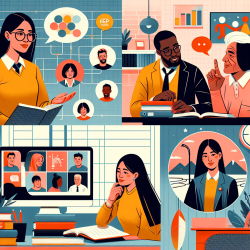Introduction
Communication between educators and parents in special education is crucial for building positive relationships and fostering collaboration. Effective communication allows for the sharing of thoughts, ideas, and concerns about a student's educational progress. Parents often feel that understanding, training, and effective communication are essential qualities for special education teachers to possess.
The Importance of Communication
When students have multiple needs and receive various special education services, ongoing communication between parents and the student's case manager is vital. Common tools for communication include notebooks, behavior charts, and emails. However, even with these tools, parents may feel they are missing important information or feel uncomfortable sharing their thoughts during meetings.
Challenges in Communication
Research shows that many parents feel overwhelmed or anxious during IEP meetings. Teachers, too, often lack adequate training in parental communication and collaboration. This gap can lead to missed opportunities for building strong partnerships with parents.
Effective Communication Methods
Successful communication involves understanding both teachers' and parents' views. Teachers must recognize parents as valuable partners with unique insights into their child's needs. Establishing two-way communication is essential, and it is important to consider parents' preferred methods and times for communication.
Conclusion
Through self-reflection, I have learned the importance of adapting communication methods to meet the needs of different families. By offering various communication options and encouraging regular interaction, we can build stronger partnerships with parents, ultimately benefiting our students.
For more information, please follow this link.










